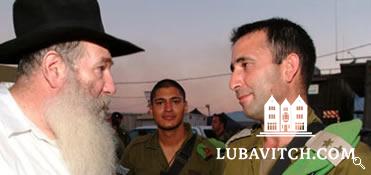The tensions that typically mark the divide between religious and secular in Israel are nowhere in evidence these days. In its stead is an enveloping compassion, empathy and love. The numinous spirit said to bind Jew to Jew beckons everywhere. On the lively streets of Jerusalem, in the coffee shops and on the city buses, focused prayers and intense hopes are prevalent.
Here in Israel, a country that depends on the courage of its young men–many still in their teens–for its day to day survival, every soldier is a hero. He is also everyone’s son. When one of them is lost, the grief is widespread, the heartache, pervasive. Israelis swell with the desire to protect them, to keep them safe and bring them back home alive.
The feelings are reciprocal. Soldiers are full of thanks for the smallest of gestures; they draw strength from the love and well-wishing that surrounds them. I met Yossi, a 26 year-old technician now in business. A marine in an elite IDF unit trained for specialized missions, Yossi leaves his young wife and heads to the battlefield this Sunday. ‘I’m a secular Jew,’ he tells me, ‘but when you’re facing the enemy, there’s no such thing. You cry the Shema with the same fervor.’
The desire among Israel’s IDF forces across the spectrum, to bolster themselves in all ways possible, makes them especially receptive and filled with gratitude for spiritual avenues of reinforcement. So Chabad’s Rabbi Menachem Ofen makes his rounds to the army bases, installing a Sefer Chitat, or a book that contains Psalms, the Pentateuch, and Tanya, in every tank. And now, he’s launched a project to write three Torah scrolls that will have letters corresponding to every member in the IDF.
It began on Monday, when Menachem was visiting the Golani Brigade at a northern army base and a Druse general approached him. A mobile synagogue was on the base, but a Torah scroll was missing, he told Menachem. ‘The soldiers need it.’
Rabbi Yitzchak Kogan, of Moscow, Russia, heard this. Rabbi Kogan, who endured the worst of communist persecution, came from Russia for two days, to give spiritual support to the soldiers. It took him no more than a few minutes and a few phone calls, and funds were secured for a new Torah scroll.
In a matter of 24 hours, the Torah would have to be ready. The batallion was scheduled to leave the army base for Lebanon by Tuesday evening. Tuesday afternoon the Torah scroll was picked up from the scribe in Jerusalem, and the parchment sections were sewn together on the way up north while the car missed a falling katyusha by a few feet.
At the base Chabad rabbinical students were greeted by intense, last minute preparations.
‘It was wild,’ says Menachem who watched as army personnel tied up loose ends with breakneck speed. Shouting above the din, Menachem called out, ‘Dear soldiers! We’ve come here with a gift that will accompany you to the battlefield. We’ve come to bring you a Torah scroll, written specifically for you, the Israel Defense Forces.’
While faces were painted, provisions loaded into tanks, and orders delegated, soldiers surrounded Menachem. A cloth was spread out and the Torah scroll was unrolled. ‘They all wanted the scribe fill a letter in the Torah for them,’ says Menachem. The General of the Golani Brigade was invited to write the final letter in the Torah.
In a spiritually charged moment, soldiers, officers, and the highest ranking generals covered their eyes and called out the Shema, ‘Hear-O-Israel.’
Rabbi Kogan, a kohen, delivered the Priestly Blessings: Yivarekhikha Hashem v’Yishmirekha . . . ‘May G-d bless you and guard you. May G-d’s countenance shine upon you and be gracious to you. May He turn his countenance towards you and grant you peace.’
The words reverberated against the surreal backdrop. ‘You could feel the entire brigade absorbing the blessing with profound intensity,’ says Menachem.
The soldiers then formed a circle around the Torah and began to dance. ‘It was the dance of life,’ he says. ‘The joy was transcendent.’
Fortified with the blessings of the kohen, the Shema prayer, and a Torah scroll, the soldiers took their leave, heading out into a dark and unknown night.

Be the first to write a comment.